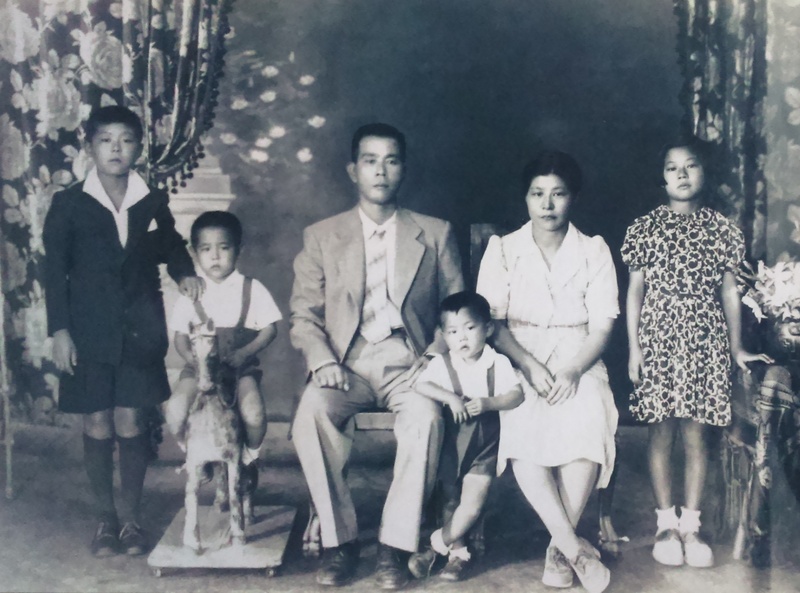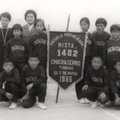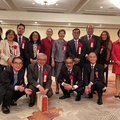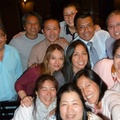We are three or four Nikkei in the class. The history teacher asks us if we have any relatives who were deported to the United States during World War II. In another room, a boy of Japanese origin had told of his grandfather's escape through the roof of his house to avoid being captured and expelled to the United States. The story has fascinated her and she wants to know if we have a similar one to share with him. rest of the class.
I say no, but I suspect that she doesn't believe me and thinks I'm lying out of shame, so as not to tell anything. The truth, however, is that I don't have the foggiest idea what you're asking me. Japanese deported to the United States? After school, when I get home, I could ask my parents. However, as soon as class ends I completely forget about it.
About two or three years later, already at university, a Nikkei friend arrives with a polo shirt that has the inscription: “90th anniversary of Japanese immigration to Peru.” I ask him where he got it, but nothing more. I don't ask him what the 90th anniversary is about, what it means. I could ask my parents when I get home, but I don't because I forget about it.
A lot of time has passed since then and now I ask myself: How do I explain forgetting in both cases? I think the explanation is simple: lack of interest. Zero curiosity.
If I had been even curious back then, I would have asked my parents. They would have told me what they knew and then they would have told me: ask your grandmothers (my grandparents were already dead).
If I had asked my grandmothers, they would have told me what they experienced during the war, the looting of Japanese businesses in May 1940, the confiscations of their property, the hunt for Issei to be deported, etc.
Well, actually I can't say for sure that they would have told me about the war. Perhaps, in order not to resurrect painful memories, they would have told me that that was already over, that it was an ugly time that is not worth reliving, and that we must look forward.
However, I am assuming that they had spoken. Returning to that hypothetical scenario, I'm sure that after telling me about their experiences during the war they would have remembered how they arrived in Peru by boat with hundreds of other Japanese, what the Okinawa they left was like, etc.
I would have been surprised to learn about their experiences because at that time I saw my grandmothers only as my parents' mothers, I did not imagine them as part of a story that began in 1899 when the first group of Japanese immigrants arrived in Peru.
I began to become interested in the topic in the late 1990s, when the Nikkei community was preparing to celebrate the centenary of Japanese immigration to Peru in 1999. It was then that I remembered the two events that I related at the beginning.
I regretted not having been curious, not having asked to hear the first-hand testimony of my grandmothers telling what it was like saying goodbye to their parents in Japan, what their very long boat trip was like—how they killed time, what they ate, who they talked to, how they felt, if they were afraid, hopeful, if they would have preferred to stay in Okinawa instead of venturing into uncertainty—, and their arrival in Peru, which I imagine for them must have been like arriving to another planet in times when there was no internet. and the world was not interconnected like today.
Not being curious prevented me from hearing from their mouths how they made their way in Peru, how they adapted to the country, how among countrymen they helped each other to get ahead, how they overcame discrimination and how, after the end of the war, they decided not to get bogged down. in resentment and regret for what has been suffered, but to continue getting up early every day to go to work because life goes on.
TIME TO KNOW
Now that on April 3 we commemorate the 118th anniversary of Japanese immigration to Peru, let's take advantage of the occasion to remember Japanese immigrants. If someone reading this is making the same mistake that I made when I was a student—not being curious, not asking questions, not trying to escape ignorance—I hope they rectify themselves and talk to their parents, grandparents or great-grandparents to ask them about the story. of their Japanese ancestors who migrated to Peru.
If you don't know, then you don't value. You are born with certain comforts (perhaps not many, but enough to be guaranteed food, shelter, clothing and studies) and you believe that they correspond to you by natural right, you take them for granted like the air you breathe, ignoring that there were people before who worked hard for you to have them, who left their parents and their land to make a future for themselves in an unknown world on the other side of the ocean, who fled poverty so that you would not be poor.
Anyway, if my old teacher asked me the same question today, I would tell her that I had a great-uncle who was deported. He would tell her that he hid from the police, that he managed to stay safe in a hut located on land that belonged to a Japanese family, and that he decided to turn himself in after being informed—through his family—that if he did, the Peruvian authorities would They would allow him to be deported to the United States with his wife and children.
I would tell him that my great-uncle's eldest daughter, since she was married, was able to stay in Peru, that the others left and were locked up in a camp in Texas, that at the end of the war some of his children stayed in the United States and that the rest traveled to Japan, where they rebuilt their lives in a devastated Okinawa. I would also tell him that if I didn't tell him this at school, it wasn't because of shame, but because of ignorance.
© 2016 Enrique Higa






